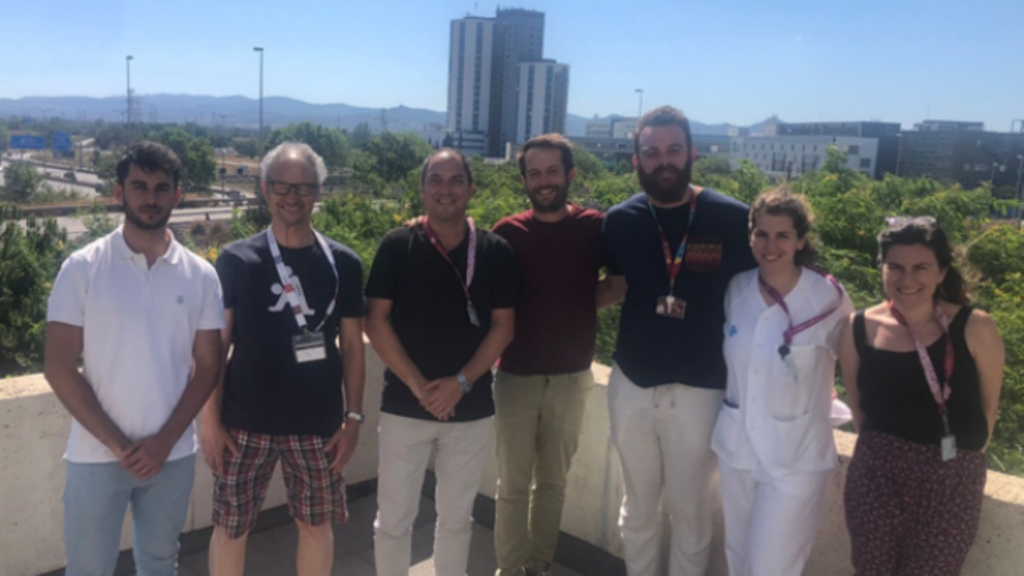A study by researchers from the University of Virginia, in collaboration with specialists from IDIBELL, HUB and ICO, offers unprecedented perspectives on the molecular mechanisms that lead to Hereditary Hemorrhagic Telangiectasia (HHT), through the detection of a mechanism consisting of accelerated cell turnover in these vascular malformations. In addition, research shows that inhibiting the mechanism can prevent the development of vascular malformations.
Bellvitge researchers have been able to provide evidence of this new mechanism also in cutaneous telangiectasias of patients with HHT. The knowledge will be of great use to patients with HHT, as well as to those with vascular malformations from other conditions, some also considered minority diseases. Translational research has been the way of working during research, in which clinical questions were studied in cell models or with animals in the laboratory in order to return the information directly to the analysis with patients.
The finding has been published in Circulation, a journal specialized in the cardiovascular area, and the research counted on the participation of Dr. Antoni Riera-Mestre, leader of the research group on systemic, vascular and aging diseases at IDIBELL and HUB, and Dr. Pau Cerdà Serra and Dr. Agnès Figueras, researchers of the IDIBELL and ICO Oncobell Program.
Hereditary Hemorrhagic Telangiectasia
HHT is a minority disease that affects one in every 6,000 people, causing them vascular malformations, both in capillaries (called telangiectasias) and in larger vessels, especially at lung and liver level. The pathology, which currently has no cure, has as its most frequent clinical manifestation repeated nosebleeds, due to the presence of telangiectasias at this level.
The Bellvitge Biomedical Research Institute (IDIBELL) is a biomedical research center created in 2004. It is participated by the Bellvitge University Hospital and the Viladecans Hospital of the Catalan Institute of Health, the Catalan Institute of Oncology, the University of Barcelona and the City Council of L’Hospitalet de Llobregat.
IDIBELL is a member of the Campus of International Excellence of the University of Barcelona HUBc and is part of the CERCA institution of the Generalitat de Catalunya. In 2009 it became one of the first five Spanish research centers accredited as a health research institute by the Carlos III Health Institute. In addition, it is part of the “HR Excellence in Research” program of the European Union and is a member of EATRIS and REGIC. Since 2018, IDIBELL has been an Accredited Center of the AECC Scientific Foundation (FCAECC).

